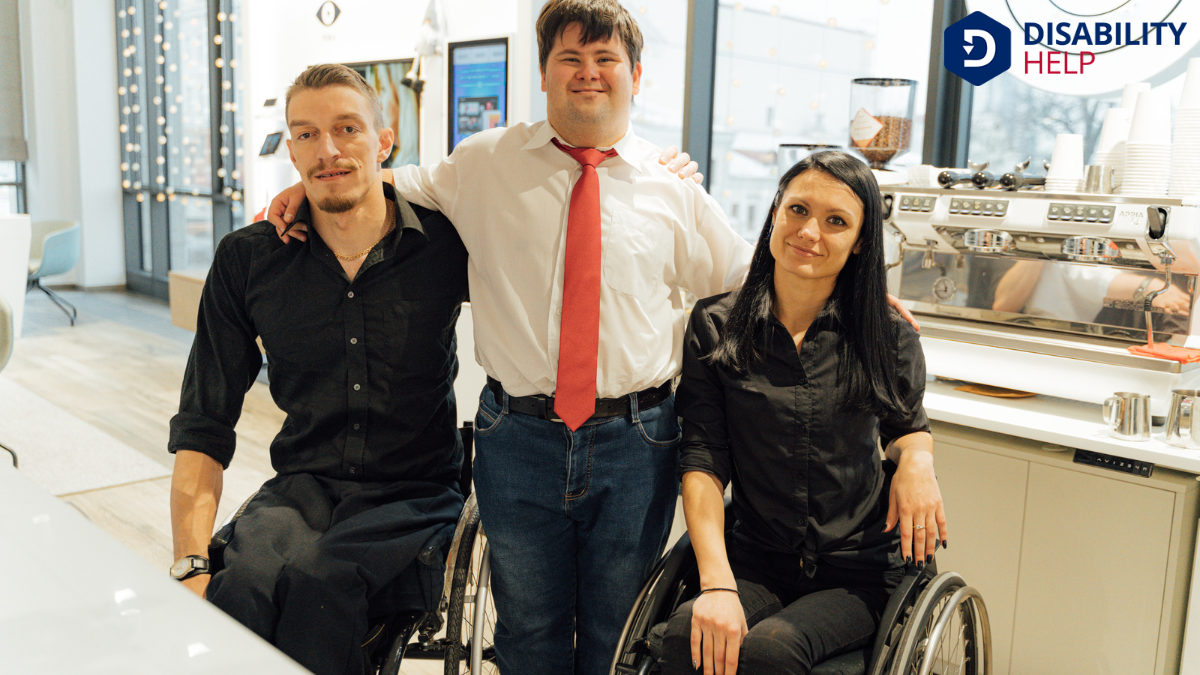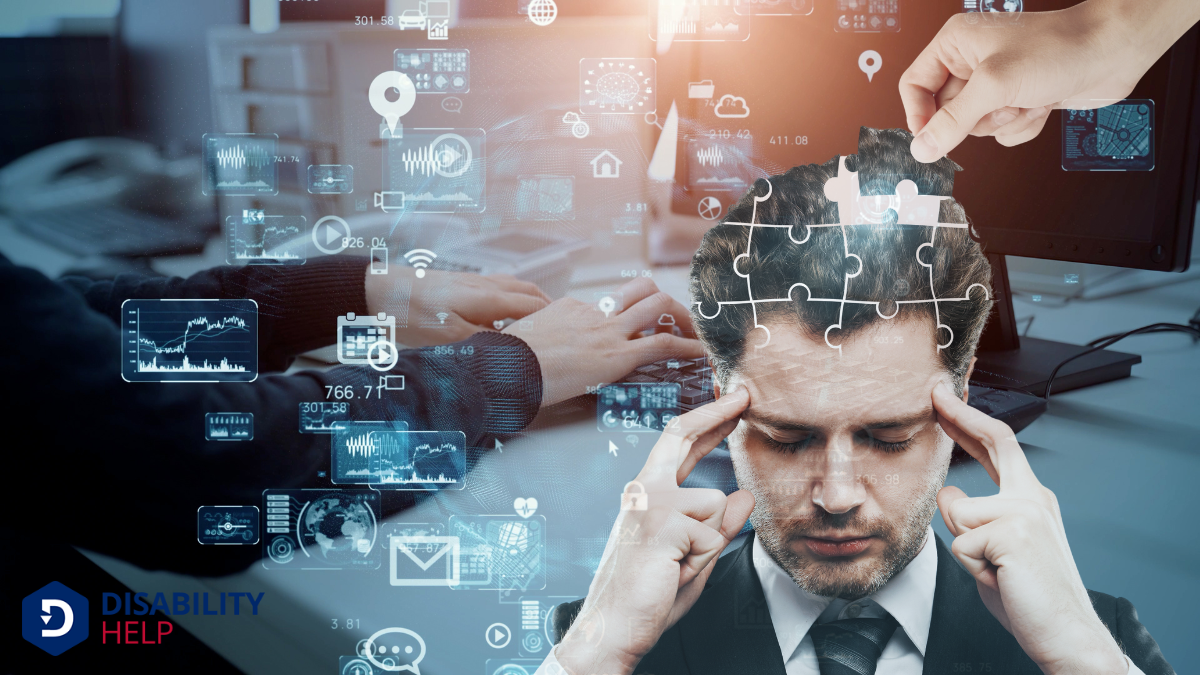Yes, there are leadership programs specifically designed for individuals with disabilities. These programs focus on empowermentThe process of gaining control, authority, and power over one’s life, often used in the context of..., adaptive communication, and resilienceThe ability of individuals with disabilities to cope with and adapt to challenges and adversity., offering accessibilityThe design of products, devices, services, or environments to be usable by people with disabilities.... in materials and technologies. Participants benefit from mentorship and real-world applications, helping them overcome barriers and thrive in leadership roles. By highlighting the value of diverse experiences, these programs not only equip individuals with essential skills but also transform perceptions and foster an inclusive culture. There's more to uncover about how they reshape leadership landscapes.
Key Takeaways
- Leadership programs for individuals with disabilities are increasingly available and focus on empowering diverse leadership skills.
- Organizations like the National Center for Disability Leadership offer specialized workshops and mentorship for individuals with disabilities.
- Universities provide inclusive courses integrating students with and without disabilities to develop leadership abilities.
- Programs emphasize accessible materials, venues, and technologies to ensure full participation.
- Participants gain real-world leadership experience and skills, preparing them for diverse challenges.
Understanding the Need for Inclusive Leadership Training
Recognizing the growing demand for inclusive leadership training, we must comprehend why it's essential for individuals with disabilities. We understand that leadership roles often lack diverse representationThe way people with disabilities are depicted in media, culture, and politics, often influencing pub..., and individuals with disabilities face unique challenges.
By developing inclusive programs, we guarantee that everyone has the chance to lead and contribute their perspectives. It's not just about filling quotas; it's about embracing varied experiences that enrich our organizations and communities.
When we empower individuals with disabilities through proper training, we reveal potential that benefits us all. They offer fresh insights that can drive innovation and foster a culture of inclusionThe practice of creating environments in which any individual or group can be and feel welcomed, res....
We should aim to create environments where diverse leaders emerge naturally, challenging stereotypes and breaking down barriers. Together, we can build a future where leadership truly reflects society's rich tapestry.
Exploring Existing Leadership Programs for People With Disabilities

Although leadership programs for people with disabilities are becoming more prevalent, it's essential we explore what's currently available to truly understand their impact. Various organizations have initiated programs aimed at empowering individuals with disabilities, enhancing their leadership skills, and preparing them for diverse challenges in leadership roles.
For instance, the National Center for Disability Leadership offers tailored workshops and mentorship opportunities, focusing on real-world applications of leadership principles.
We also see efforts from universities providing inclusive leadership courses, which integrate students with and without disabilities, fostering mutual understanding and collaboration.
These programs often emphasize adaptive communication, problem-solving, and strategic thinking.
Key Features of Effective Leadership Programs
When we examine effective leadership programs for individuals with disabilities, we notice they often share key features that drive their success.
First, they emphasize accessibility, ensuring that materials, venues, and technologies cater to diverse needs. They also prioritize mentorship, pairing participants with experienced leaders who offer guidance and support.
Another critical element is the focus on empowerment, encouraging self-advocacyThe act of representing oneself and one’s interests, particularly by individuals with disabilities... and resilience. These programs provide opportunities for real-world application, allowing participants to practice leadership skills in various settings.
Additionally, they foster a sense of community, creating a supportive network where individuals can share experiences and insights.
Finally, they promote continuous learning, adapting to participants' evolving needs.
Success Stories: Leaders Emerging From Disability-Focused Programs
Let's explore inspiring success stories where individuals with disabilities have risen to leadership roles, overcoming challenges through targeted training and empowerment.
These programs have equipped participants with essential skills, enabling them to break barriers and redefine what's possible in leadership.
As we look at these achievements, we can see the transformative impact of focused development and support.
Overcoming Challenges Through Training
In the journey to leadership, individuals with disabilities often face unique challenges, yet many have triumphantly emerged as successful leaders through specialized training programs.
We've seen firsthand how these programs focus on overcoming barriers by tailoring experiences to meet diverse needs. Participants learn to navigate obstacles and develop resilience, enabling them to face professional challenges head-on.
These programs offer an environment where individuals can grow by addressing personal and external hurdles. By sharing experiences and strategies, participants build confidence and broaden their perspectives.
We find that such training not only enhances leadership skills but also fosters a strong sense of community among peers. Ultimately, these programs demonstrate that with the right support, individuals with disabilities can achieve remarkable leadership success.
Empowerment and Skill Development
Although challenges may initially seem intimidating, we've witnessed remarkable transformations in individuals through disability-focused leadership programs. These programs empower participants, giving them the confidence and skills needed to lead effectively.
By focusing on personal growth and professional development, individuals with disabilities can uncover their true potential. Here’s how these programs foster empowerment and skill development:
- Personalized Training: Tailored workshops address individual strengths and areas for improvement, ensuring participants gain the most relevant skills for their leadership journeys.
- Mentorship Opportunities: Access to mentors who understand their unique challenges provides guidance, encouragement, and real-world insights.
- Networking Events: Connecting with peers and industry leaders opens doors to new opportunities and collaborations, expanding participants' professional horizons.
Through these avenues, individuals not only develop skills but also emerge as confident leaders.
Breaking Barriers to Leadership
When we explore success stories from disability-focused leadership programs, we see how these initiatives break down barriers and redefine what's possible.
Individuals once sidelined by society's limitations now lead with confidence, proving that talent knows no bounds. These programs equip them with the skills and opportunities to shine in roles they might've never imagined.
Consider Maria, who, through a leadership program, emerged as a powerful advocate for accessible education policy.
Or Jamal, who now leads a thriving tech startup, breaking stereotypes about what leaders look like.
These stories inspire and remind us of the transformative power of inclusivity.
How These Programs Challenge and Change Perceptions

When we explore leadership programs for individuals with disabilities, we quickly see how they break long-standing stereotypes and empower diverse leadership narratives.
These programs don't just build skills; they reshape how we perceive leadership potential and success.
Breaking Stereotypes Through Leadership
Leadership programs designed for individuals with disabilities are shattering long-held stereotypes by empowering participants to redefine societal perceptions. By equipping individuals with the skills and confidence to lead, these programs help us see beyond limiting labels. Participants not only develop their own potential but also challenge outdated views.
Here’s how they break down barriers:
- Visibility: Leaders with disabilities become role models, showing us that leadership knows no bounds.
- AdvocacyThe act of arguing in favor of, supporting, or defending the rights and interests of individuals or ...: They promote awareness and inclusion, changing minds and policies along the way.
- Innovation: Their unique perspectives drive creative solutions, proving that diversityThe inclusion of individuals from a wide range of backgrounds, including people with disabilities. strengthens leadership.
Through these programs, we learn to appreciate the immense value that individuals with disabilities bring to the table, ultimately reshaping our understanding of leadership.
Empowering Diverse Leadership Narratives
While many of us recognize the power of diverse narratives, leadership programs for individuals with disabilities actively challenge and change our perceptions by offering fresh perspectives.
These programs empower participants to share their unique stories, which often go unheard. By highlighting personal experiences, they help us understand the diverse challenges and triumphs faced by individuals with disabilities.
Through these narratives, we see leadership through a new lens, one that values adaptability and resilience. As participants navigate their leadership journeys, they break down barriers and redefine what leadership looks like.
This shift in perspective encourages us to appreciate the strength in diversity and the innovation it brings. By embracing these narratives, we can foster a more inclusive environment where all voices are heard and valued.
Ways to Support and Expand Accessibility in Leadership Development
To truly enhance accessibility in leadership development, we must prioritize inclusive practices that accommodate individuals with disabilities.
It’s crucial to create environments where everyone feels empowered to lead. Here are three ways we can achieve this:
- Offer Flexible Learning Options: Provide online courses and workshops with closed captions and transcripts. This guarantees that participants can learn at their own pace and in a manner that suits their needs.
- Implement Adaptive Technologies: Use software and devices that cater to various disabilities, such as screen readers or voice recognition tools, to guarantee all participants can fully engage with the content.
- Foster an Inclusive Culture: Train facilitators and peers to understand and respect diverse abilities, encouraging an atmosphere of support and collaboration.
Let's work together to make leadership development accessible to everyone.
Future Trends in Leadership Programs for Individuals With Disabilities
As we look to the future, leadership programs for individuals with disabilities are poised to evolve in exciting ways.
We anticipate a surge in technology-driven solutions that enhance accessibility and inclusivity. Virtual reality and AI will simulate real-world scenarios, allowing participants to develop skills in a controlled environment. We'll see more personalized learning paths, adapting to diverse needs and learning styles. Programs will increasingly embrace universal designThe design of products, environments, and services to be usable by all people, to the greatest exten... principles, ensuring everyone can fully participate.
Moreover, collaboration across sectors will expand, integrating insights from experts in disability advocacyEfforts and services aimed at protecting and promoting the rights and interests of individuals with ..., education, and technology.
Conclusion
In exploring inclusive leadership programs, we’ve discovered how essential they are for empowering individuals with disabilities. These initiatives not only nurture potential leaders but also challenge societal perceptions. By supporting and expanding accessibility, we can foster environments where everyone thrives. Let’s continue to advocate for and invest in these programs, ensuring future leaders emerge from all walks of life. Together, we can create a more inclusive and dynamic leadership landscape for generations to come.






